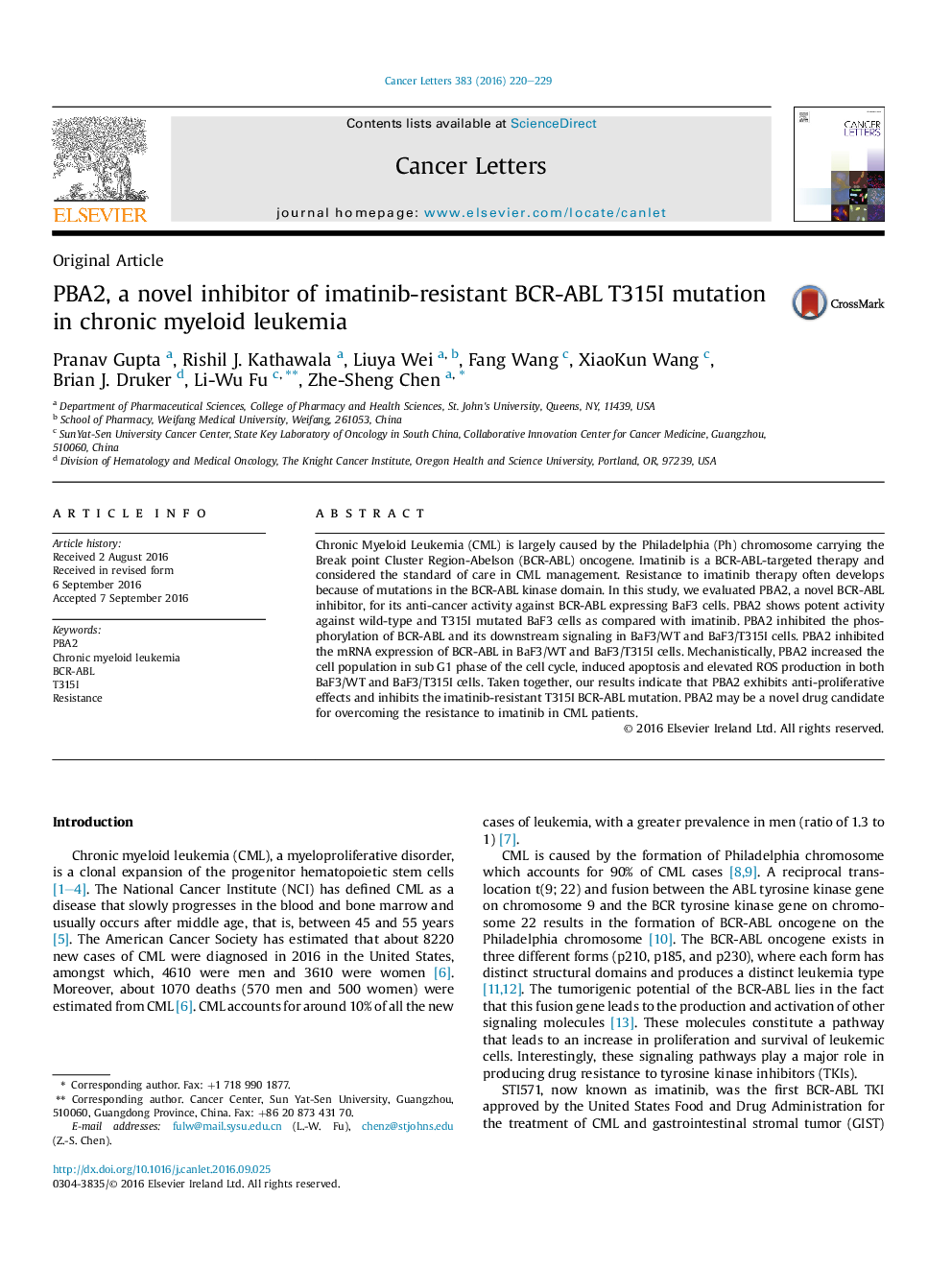| Article ID | Journal | Published Year | Pages | File Type |
|---|---|---|---|---|
| 5525458 | Cancer Letters | 2016 | 10 Pages |
â¢PBA2 is a modern inhibitor of the imatinib-resistant BCR-ABL T315I mutation.â¢PBA2 potently inhibits the BCR-ABL signaling pathway and mRNA expression of BCR-ABL.â¢PBA2 induces sub G1 phase and early apoptosis with subsequent increase in ROS production.â¢PBA2 is a suitable drug candidate for the treatment against the T315I mutation in CML.
Chronic Myeloid Leukemia (CML) is largely caused by the Philadelphia (Ph) chromosome carrying the Break point Cluster Region-Abelson (BCR-ABL) oncogene. Imatinib is a BCR-ABL-targeted therapy and considered the standard of care in CML management. Resistance to imatinib therapy often develops because of mutations in the BCR-ABL kinase domain. In this study, we evaluated PBA2, a novel BCR-ABL inhibitor, for its anti-cancer activity against BCR-ABL expressing BaF3 cells. PBA2 shows potent activity against wild-type and T315I mutated BaF3 cells as compared with imatinib. PBA2 inhibited the phosphorylation of BCR-ABL and its downstream signaling in BaF3/WT and BaF3/T315I cells. PBA2 inhibited the mRNA expression of BCR-ABL in BaF3/WT and BaF3/T315I cells. Mechanistically, PBA2 increased the cell population in sub G1 phase of the cell cycle, induced apoptosis and elevated ROS production in both BaF3/WT and BaF3/T315I cells. Taken together, our results indicate that PBA2 exhibits anti-proliferative effects and inhibits the imatinib-resistant T315I BCR-ABL mutation. PBA2 may be a novel drug candidate for overcoming the resistance to imatinib in CML patients.
